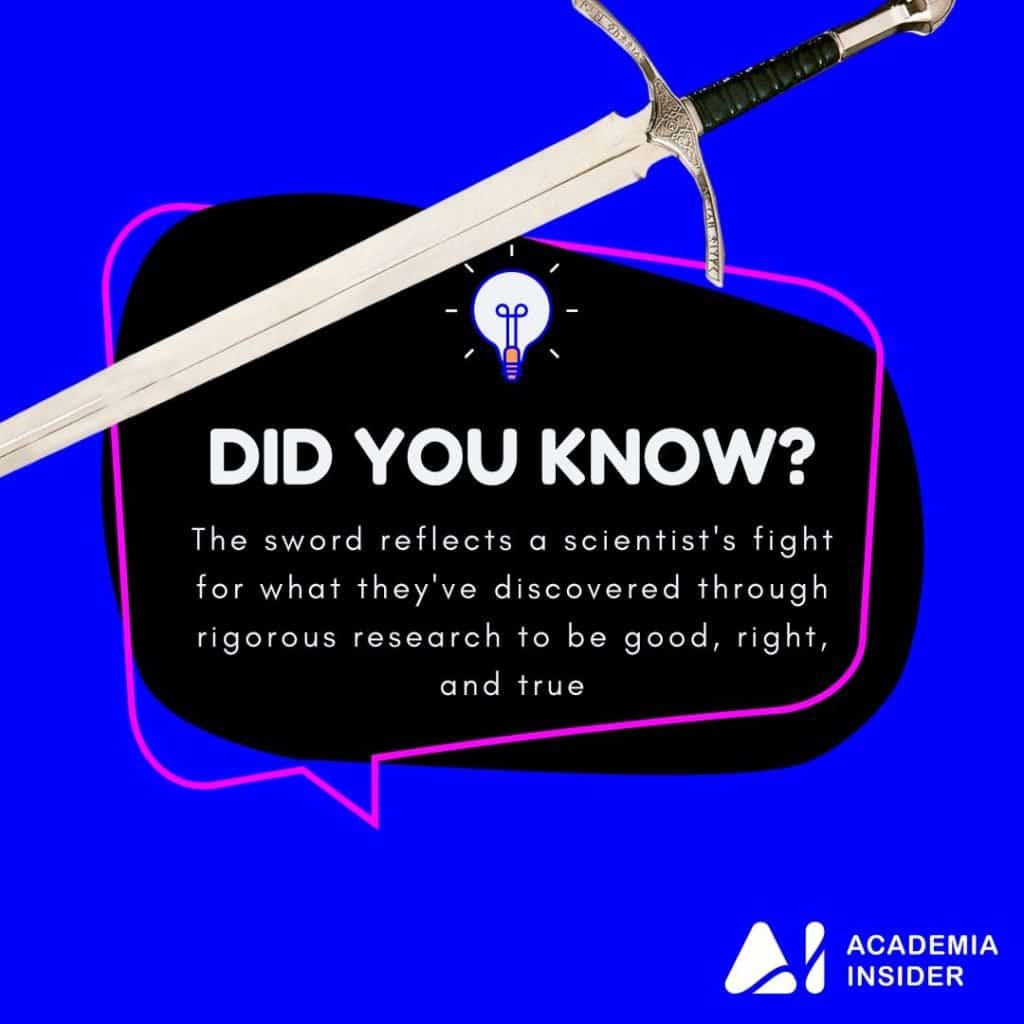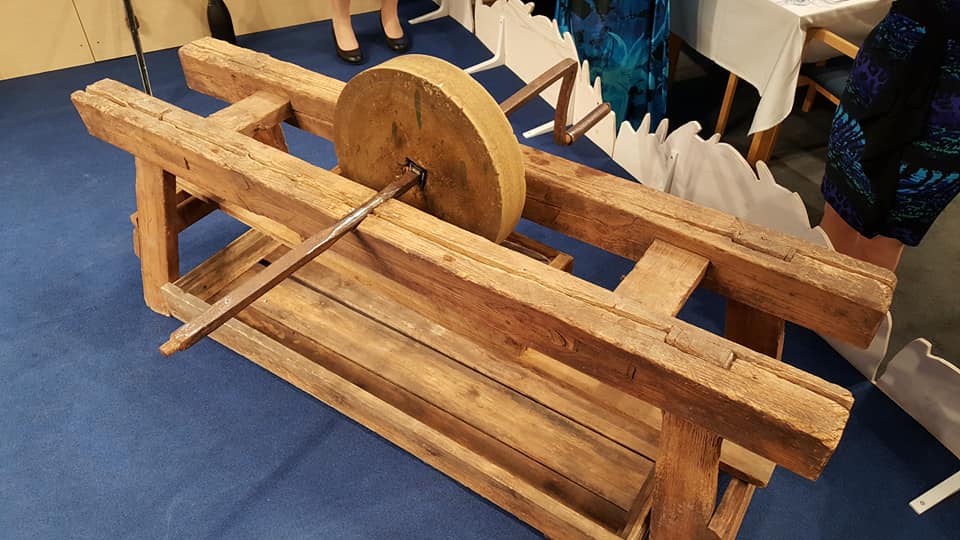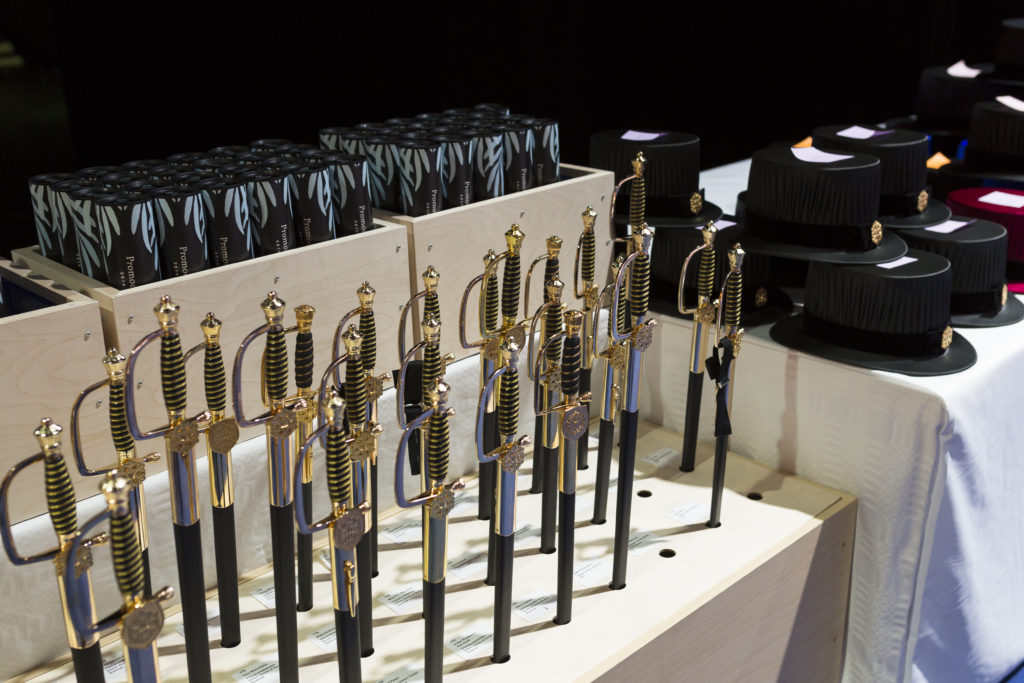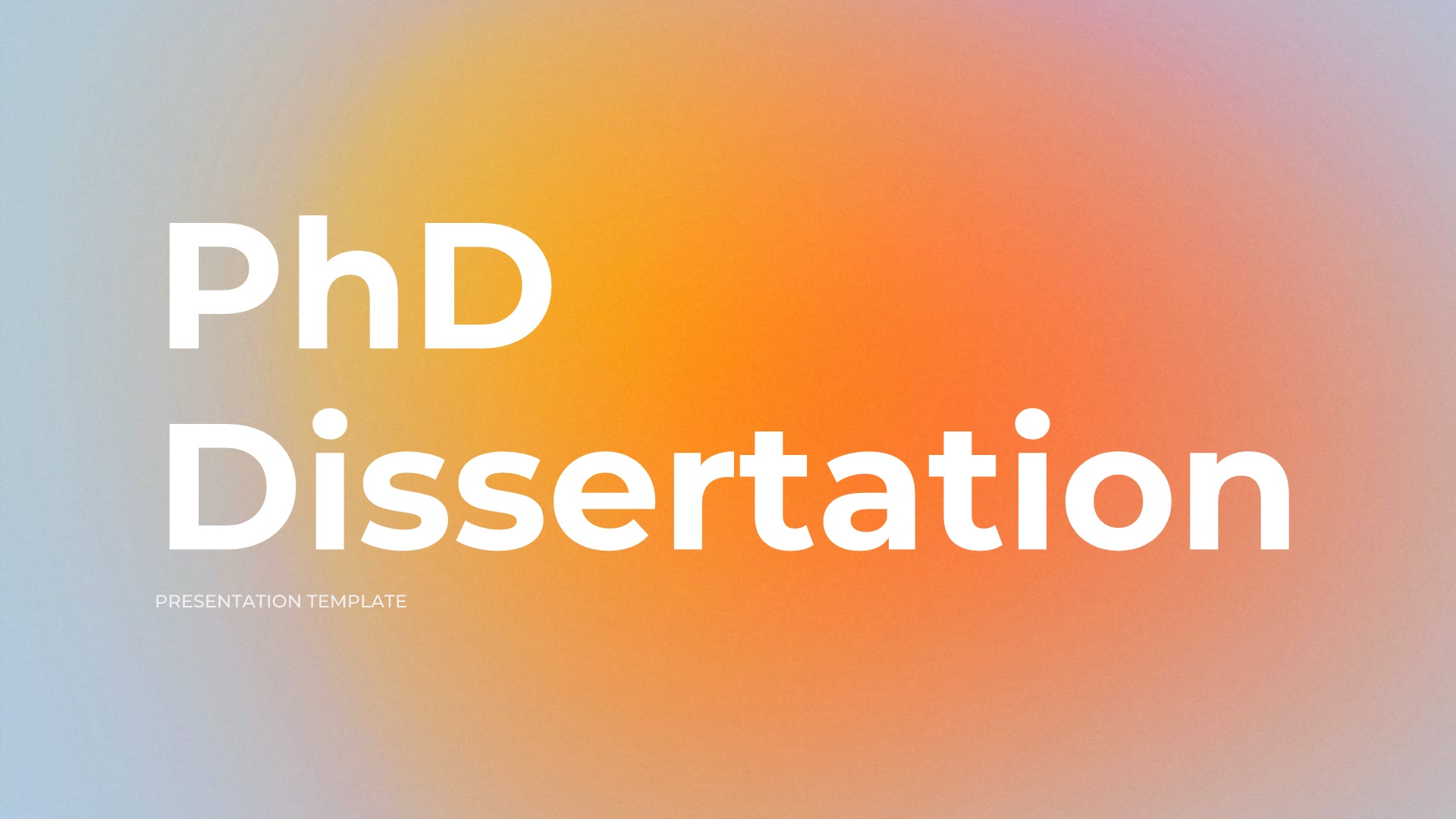
Research Voyage
Research Tips and Infromation

PhD Defence Process: A Comprehensive Guide

Embarking on the journey toward a PhD is an intellectual odyssey marked by tireless research, countless hours of contemplation, and a fervent commitment to contributing to the body of knowledge in one’s field. As the culmination of this formidable journey, the PhD defence stands as the final frontier, the proverbial bridge between student and scholar.
In this comprehensive guide, we unravel the intricacies of the PhD defence—a momentous occasion that is both a celebration of scholarly achievement and a rigorous evaluation of academic prowess. Join us as we explore the nuances of the defence process, addressing questions about its duration, contemplating the possibility of failure, and delving into the subtle distinctions of language that surround it.
Beyond the formalities, we aim to shed light on the significance of this rite of passage, dispelling misconceptions about its nature. Moreover, we’ll consider the impact of one’s attire on this critical day and share personal experiences and practical tips from those who have successfully navigated the defence journey.
Whether you are on the precipice of your own defence or are simply curious about the process, this guide seeks to demystify the PhD defence, providing a roadmap for success and a nuanced understanding of the pivotal event that marks the transition from student to scholar.
Introduction
A. definition and purpose:, b. overview of the oral examination:, a. general duration of a typical defense, b. factors influencing the duration:, c. preparation and flexibility:, a. preparation and thorough understanding of the research:, b. handling questions effectively:, c. confidence and composure during the presentation:, d. posture of continuous improvement:, a. exploring the possibility of failure:, b. common reasons for failure:, c. steps to mitigate the risk of failure:, d. post-failure resilience:, a. addressing the language variation:, b. conforming to regional preferences:, c. consistency in usage:, d. flexibility and adaptability:, e. navigating language in a globalized academic landscape:, a. debunking myths around the formality of the defense:, b. significance in validating research contributions:, c. post-defense impact:, a. appropriate attire for different settings:, b. professionalism and the impact of appearance:, c. practical tips for dressing success:, b. practical tips for a successful defense:, c. post-defense reflections:, career options after phd.
Embarking on the doctoral journey is a formidable undertaking, where aspiring scholars immerse themselves in the pursuit of knowledge, contributing new insights to their respective fields. At the pinnacle of this academic odyssey lies the PhD defence—a culmination that transcends the boundaries of a mere formality, symbolizing the transformation from a student of a discipline to a recognized contributor to the academic tapestry.
The PhD defence, also known as the viva voce or oral examination, is a pivotal moment in the life of a doctoral candidate.
PhD defence is not merely a ritualistic ceremony; rather, it serves as a platform for scholars to present, defend, and elucidate the findings and implications of their research. The defence is the crucible where ideas are tested, hypotheses scrutinized, and the depth of scholarly understanding is laid bare.
The importance of the PhD defence reverberates throughout the academic landscape. It is not just a capstone event; it is the juncture where academic rigour meets real-world application. The defence is the litmus test of a researcher’s ability to articulate, defend, and contextualize their work—an evaluation that extends beyond the pages of a dissertation.
Beyond its evaluative nature, the defence serves as a rite of passage, validating the years of dedication, perseverance, and intellectual rigour invested in the research endeavour. Success in the defence is a testament to the candidate’s mastery of their subject matter and the originality and impact of their contributions to the academic community.
Furthermore, a successful defence paves the way for future contributions, positioning the scholar as a recognized authority in their field. The defence is not just an endpoint; it is a launchpad, propelling researchers into the next phase of their academic journey as they continue to shape and redefine the boundaries of knowledge.
In essence, the PhD defence is more than a ceremonial checkpoint—it is a transformative experience that validates the intellectual journey, underscores the significance of scholarly contributions, and sets the stage for a continued legacy of academic excellence. As we navigate the intricacies of this process, we invite you to explore the multifaceted dimensions that make the PhD defence an indispensable chapter in the narrative of academic achievement.
What is a PhD Defence?
At its core, a PhD defence is a rigorous and comprehensive examination that marks the culmination of a doctoral candidate’s research journey. It is an essential component of the doctoral process in which the candidate is required to defend their dissertation before a committee of experts in the field. The defence serves multiple purposes, acting as both a showcase of the candidate’s work and an evaluative measure of their understanding, critical thinking, and contributions to the academic domain.
The primary goals of a PhD defence include:
- Presentation of Research: The candidate presents the key findings, methodology, and significance of their research.
- Demonstration of Mastery: The defence assesses the candidate’s depth of understanding, mastery of the subject matter, and ability to engage in scholarly discourse.
- Critical Examination: Committee members rigorously question the candidate, challenging assumptions, testing methodologies, and probing the boundaries of the research.
- Validation of Originality: The defence validates the originality and contribution of the candidate’s work to the existing body of knowledge.
The PhD defence often takes the form of an oral examination, commonly referred to as the viva voce. This oral component adds a dynamic and interactive dimension to the evaluation process. Key elements of the oral examination include:
- Presentation: The candidate typically begins with a formal presentation, summarizing the dissertation’s main components, methodology, and findings. This presentation is an opportunity to showcase the significance and novelty of the research.
- Questioning and Discussion: Following the presentation, the candidate engages in a thorough questioning session with the examination committee. Committee members explore various aspects of the research, challenging the candidates to articulate their rationale, defend their conclusions, and respond to critiques.
- Defence of Methodology: The candidate is often required to defend the chosen research methodology, demonstrating its appropriateness, rigour, and contribution to the field.
- Evaluation of Contributions: Committee members assess the originality and impact of the candidate’s contributions to the academic discipline, seeking to understand how the research advances existing knowledge.
The oral examination is not a mere formality; it is a dynamic exchange that tests the candidate’s intellectual acumen, research skills, and capacity to contribute meaningfully to the scholarly community.
In essence, the PhD defence is a comprehensive and interactive evaluation that encapsulates the essence of a candidate’s research journey, demanding a synthesis of knowledge, clarity of expression, and the ability to navigate the complexities of academic inquiry. As we delve into the specifics of the defence process, we will unravel the layers of preparation and skill required to navigate this transformative academic milestone.
How Long is a PhD Defence?
The duration of a PhD defence can vary widely, but it typically ranges from two to three hours. This time frame encompasses the candidate’s presentation of their research, questioning and discussions with the examination committee, and any additional deliberations or decisions by the committee. However, it’s essential to note that this is a general guideline, and actual defence durations may vary based on numerous factors.
- Sciences and Engineering: Defenses in these fields might lean towards the shorter end of the spectrum, often around two hours. The focus is often on the methodology, results, and technical aspects.
- Humanities and Social Sciences: Given the theoretical and interpretive nature of research in these fields, defences might extend closer to three hours or more. Discussions may delve into philosophical underpinnings and nuanced interpretations.
- Simple vs. Complex Studies: The complexity of the research itself plays a role. Elaborate experiments, extensive datasets, or intricate theoretical frameworks may necessitate a more extended defence.
- Number of Committee Members: A larger committee or one with diverse expertise may lead to more extensive discussions and varied perspectives, potentially elongating the defence.
- Committee Engagement: The level of engagement and probing by committee members can influence the overall duration. In-depth discussions or debates may extend the defence time.
- Cultural Norms: In some countries, the oral defence might be more ceremonial, with less emphasis on intense questioning. In others, a rigorous and extended defence might be the norm.
- Evaluation Practices: Different academic systems have varying evaluation criteria, which can impact the duration of the defence.
- Institutional Guidelines: Some institutions may have specific guidelines on defence durations, influencing the overall time allotted for the process.
Candidates should be well-prepared for a defence of any duration. Adequate preparation not only involves a concise presentation of the research but also anticipates potential questions and engages in thoughtful discussions. Additionally, candidates should be flexible and responsive to the dynamics of the defense, adapting to the pace set by the committee.
Success Factors in a PhD Defence
- Successful defence begins with a deep and comprehensive understanding of the research. Candidates should be well-versed in every aspect of their study, from the theoretical framework to the methodology and findings.
- Thorough preparation involves anticipating potential questions from the examination committee. Candidates should consider the strengths and limitations of their research and be ready to address queries related to methodology, data analysis, and theoretical underpinnings.
- Conducting mock defences with peers or mentors can be invaluable. It helps refine the presentation, exposes potential areas of weakness, and provides an opportunity to practice responding to challenging questions.
- Actively listen to questions without interruption. Understanding the nuances of each question is crucial for providing precise and relevant responses.
- Responses should be clear, concise, and directly address the question. Avoid unnecessary jargon, and strive to convey complex concepts in a manner that is accessible to the entire committee.
- It’s acceptable not to have all the answers. If faced with a question that stumps you, acknowledge it honestly. Expressing a willingness to explore the topic further demonstrates intellectual humility.
- Use questions as opportunities to reinforce key messages from the research. Skillfully link responses back to the core contributions of the study, emphasizing its significance.
- Rehearse the presentation multiple times to build familiarity with the material. This enhances confidence, reduces nervousness, and ensures a smooth and engaging delivery.
- Maintain confident and open body language. Stand tall, make eye contact, and use gestures judiciously. A composed demeanour contributes to a positive impression.
- Acknowledge and manage nervousness. It’s natural to feel some anxiety, but channelling that energy into enthusiasm for presenting your research can turn nervousness into a positive force.
- Engage with the committee through a dynamic and interactive presentation. Invite questions during the presentation to create a more conversational atmosphere.
- Utilize visual aids effectively. Slides or other visual elements should complement the spoken presentation, reinforcing key points without overwhelming the audience.
- View the defence not only as an evaluation but also as an opportunity for continuous improvement. Feedback received during the defence can inform future research endeavours and scholarly pursuits.
In essence, success in a PhD defence hinges on meticulous preparation, adept handling of questions, and projecting confidence and composure during the presentation. A well-prepared and resilient candidate is better positioned to navigate the challenges of the defence, transforming it from a moment of evaluation into an affirmation of scholarly achievement.
Failure in PhD Defence
- While the prospect of failing a PhD defence is relatively rare, it’s essential for candidates to acknowledge that the possibility exists. Understanding this reality can motivate diligent preparation and a proactive approach to mitigate potential risks.
- Failure, if it occurs, should be seen as a learning opportunity rather than a definitive endpoint. It may highlight areas for improvement and offer insights into refining the research and presentation.
- Lack of thorough preparation, including a weak grasp of the research content, inadequate rehearsal, and failure to anticipate potential questions, can contribute to failure.
- Inability to effectively defend the chosen research methodology, including justifying its appropriateness and demonstrating its rigour, can be a critical factor.
- Failing to clearly articulate the original contributions of the research and its significance to the field may lead to a negative assessment.
- Responding defensively to questions, exhibiting a lack of openness to critique, or being unwilling to acknowledge limitations can impact the overall impression.
- Inability to address committee concerns or incorporate constructive feedback received during the defense may contribute to a negative outcome.
- Comprehensive preparation is the cornerstone of success. Candidates should dedicate ample time to understanding every facet of their research, conducting mock defences, and seeking feedback.
- Identify potential weaknesses in the research and address them proactively. Being aware of limitations and articulating plans for addressing them in future work demonstrates foresight.
- Engage with mentors, peers, or advisors before the defence. Solicit constructive feedback on both the content and delivery of the presentation to refine and strengthen the defence.
- Develop strategies to manage stress and nervousness. Techniques such as mindfulness, deep breathing, or visualization can be effective in maintaining composure during the defence.
- Conduct a pre-defense review of all materials, ensuring that the presentation aligns with the dissertation and that visual aids are clear and supportive.
- Approach the defence with an open and reflective attitude. Embrace critique as an opportunity for improvement rather than as a personal affront.
- Clarify expectations with the examination committee beforehand. Understanding the committee’s focus areas and preferences can guide preparation efforts.
- In the event of failure, candidates should approach the situation with resilience. Seek feedback from the committee, understand the reasons for the outcome, and use the experience as a springboard for improvement.
In summary, while the prospect of failing a PhD defence is uncommon, acknowledging its possibility and taking proactive steps to mitigate risks are crucial elements of a well-rounded defence strategy. By addressing common failure factors through thorough preparation, openness to critique, and a resilient attitude, candidates can increase their chances of a successful defence outcome.
PhD Defense or Defence?
- The choice between “defense” and “defence” is primarily a matter of British English versus American English spelling conventions. “Defense” is the preferred spelling in American English, while “defence” is the British English spelling.
- In the global academic community, both spellings are generally understood and accepted. However, the choice of spelling may be influenced by the academic institution’s language conventions or the preferences of individual scholars.
- Academic institutions may have specific guidelines regarding language conventions, and candidates are often expected to adhere to the institution’s preferred spelling.
- Candidates may also consider the preferences of their advisors or committee members. If there is a consistent spelling convention used within the academic department, it is advisable to align with those preferences.
- Consideration should be given to the spelling conventions of scholarly journals in the candidate’s field. If intending to publish research stemming from the dissertation, aligning with the conventions of target journals is prudent.
- If the defense presentation or dissertation will be shared with an international audience, using a more universally recognized spelling (such as “defense”) may be preferred to ensure clarity and accessibility.
- Regardless of the chosen spelling, it’s crucial to maintain consistency throughout the document. Mixing spellings can distract from the content and may be perceived as an oversight.
- In oral presentations and written correspondence related to the defence, including emails, it’s advisable to maintain consistency with the chosen spelling to present a professional and polished image.
- Recognizing that language conventions can vary, candidates should approach the choice of spelling with flexibility. Being adaptable to the preferences of the academic context and demonstrating an awareness of regional variations reflects a nuanced understanding of language usage.
- With the increasing globalization of academia, an awareness of language variations becomes essential. Scholars often collaborate across borders, and an inclusive approach to language conventions contributes to effective communication and collaboration.
In summary, the choice between “PhD defense” and “PhD defence” boils down to regional language conventions and institutional preferences. Maintaining consistency, being mindful of the target audience, and adapting to the expectations of the academic community contribute to a polished and professional presentation, whether in written documents or oral defences.
Is PhD Defense a Formality?
- While the PhD defence is a structured and ritualistic event, it is far from being a mere formality. It is a critical and substantive part of the doctoral journey, designed to rigorously evaluate the candidate’s research contributions, understanding of the field, and ability to engage in scholarly discourse.
- The defence is not a checkbox to be marked but rather a dynamic process where the candidate’s research is evaluated for its scholarly merit. The committee scrutinizes the originality, significance, and methodology of the research, aiming to ensure it meets the standards of advanced academic work.
- Far from a passive or purely ceremonial event, the defence involves active engagement between the candidate and the examination committee. Questions, discussions, and debates are integral components that enrich the scholarly exchange during the defence.
- The defence serves as a platform for the candidate to demonstrate the originality of their research. Committee members assess the novelty of the contributions, ensuring that the work adds value to the existing body of knowledge.
- Beyond the content, the defence evaluates the methodological rigour of the research. Committee members assess whether the chosen methodology is appropriate, well-executed, and contributes to the validity of the findings.
- Successful completion of the defence affirms the candidate’s ability to contribute meaningfully to the academic discourse in their field. It is an endorsement of the candidate’s position as a knowledgeable and respected scholar.
- The defence process acts as a quality assurance mechanism in academia. It ensures that individuals awarded a doctoral degree have undergone a thorough and rigorous evaluation, upholding the standards of excellence in research and scholarly inquiry.
- Institutions have specific criteria and standards for awarding a PhD. The defence process aligns with these institutional and academic standards, providing a consistent and transparent mechanism for evaluating candidates.
- Successful completion of the defence is a pivotal moment that marks the transition from a doctoral candidate to a recognized scholar. It opens doors to further contributions, collaborations, and opportunities within the academic community.
- Research presented during the defence often forms the basis for future publications. The validation received in the defence enhances the credibility of the research, facilitating its dissemination and impact within the academic community.
- Beyond the academic realm, a successfully defended PhD is a key credential for professional advancement. It enhances one’s standing in the broader professional landscape, opening doors to research positions, teaching opportunities, and leadership roles.
In essence, the PhD defence is a rigorous and meaningful process that goes beyond formalities, playing a crucial role in affirming the academic merit of a candidate’s research and marking the culmination of their journey toward scholarly recognition.
Dressing for Success: PhD Defense Outfit
- For Men: A well-fitted suit in neutral colours (black, navy, grey), a collared dress shirt, a tie, and formal dress shoes.
- For Women: A tailored suit, a blouse or button-down shirt, and closed-toe dress shoes.
- Dress codes can vary based on cultural expectations. It’s advisable to be aware of any cultural nuances within the academic institution and to adapt attire accordingly.
- With the rise of virtual defenses, considerations for attire remain relevant. Even in online settings, dressing professionally contributes to a polished and serious demeanor. Virtual attire can mirror what one would wear in-person, focusing on the upper body visible on camera.
- The attire chosen for a PhD defense contributes to the first impression that a candidate makes on the examination committee. A professional and polished appearance sets a positive tone for the defense.
- Dressing appropriately reflects respect for the gravity of the occasion. It acknowledges the significance of the defense as a formal evaluation of one’s scholarly contributions.
- Wearing professional attire can contribute to a boost in confidence. When individuals feel well-dressed and put-together, it can positively impact their mindset and overall presentation.
- The PhD defense is a serious academic event, and dressing professionally fosters an atmosphere of seriousness and commitment to the scholarly process. It aligns with the respect one accords to academic traditions.
- Institutional norms may influence dress expectations. Some academic institutions may have specific guidelines regarding attire for formal events, and candidates should be aware of and adhere to these norms.
- While adhering to the formality expected in academic settings, individuals can also express their personal style within the bounds of professionalism. It’s about finding a balance between institutional expectations and personal comfort.
- Select and prepare the outfit well in advance to avoid last-minute stress. Ensure that the attire is clean, well-ironed, and in good condition.
- Accessories such as ties, scarves, or jewelry should complement the outfit. However, it’s advisable to keep accessories subtle to maintain a professional appearance.
- While dressing professionally, prioritize comfort. PhD defenses can be mentally demanding, and comfortable attire can contribute to a more confident and composed demeanor.
- Pay attention to grooming, including personal hygiene and haircare. A well-groomed appearance contributes to an overall polished look.
- Start preparation well in advance of the defense date. Know your research inside out, anticipate potential questions, and be ready to discuss the nuances of your methodology, findings, and contributions.
- Conduct mock defenses with peers, mentors, or colleagues. Mock defenses provide an opportunity to receive constructive feedback, practice responses to potential questions, and refine your presentation.
- Strike a balance between confidence and humility. Confidence in presenting your research is essential, but being open to acknowledging limitations and areas for improvement demonstrates intellectual honesty.
- Actively engage with the examination committee during the defense. Listen carefully to questions, respond thoughtfully, and view the defense as a scholarly exchange rather than a mere formality.
- Understand the expertise and backgrounds of the committee members. Tailor your presentation and responses to align with the interests and expectations of your specific audience.
- Practice time management during your presentation. Ensure that you allocate sufficient time to cover key aspects of your research, leaving ample time for questions and discussions.
- It’s normal to feel nervous, but practicing mindfulness and staying calm under pressure is crucial. Take deep breaths, maintain eye contact, and focus on delivering a clear and composed presentation.
- Have a plan for post-defense activities. Whether it’s revisions to the dissertation, publications, or future research endeavors, having a roadmap for what comes next demonstrates foresight and commitment to ongoing scholarly contributions.
- After successfully defending, individuals often emphasize the importance of taking time to reflect on the entire doctoral journey. Acknowledge personal and academic growth, celebrate achievements, and use the experience to inform future scholarly pursuits.
In summary, learning from the experiences of others who have successfully defended offers a wealth of practical wisdom. These insights, combined with thoughtful preparation and a proactive approach, contribute to a successful and fulfilling defense experience.
You have plenty of career options after completing a PhD. For more details, visit my blog posts:
7 Essential Steps for Building a Robust Research Portfolio
Exciting Career Opportunities for PhD Researchers and Research Scholars
Freelance Writing or Editing Opportunities for Researchers A Comprehensive Guide
Research Consultancy: An Alternate Career for Researchers
The Insider’s Guide to Becoming a Patent Agent: Opportunities, Requirements, and Challenges
The journey from a curious researcher to a recognized scholar culminates in the PhD defence—an intellectual odyssey marked by dedication, resilience, and a relentless pursuit of knowledge. As we navigate the intricacies of this pivotal event, it becomes evident that the PhD defence is far more than a ceremonial rite; it is a substantive evaluation that validates the contributions of a researcher to the academic landscape.
Upcoming Events
- Visit the Upcoming International Conferences at Exotic Travel Destinations with Travel Plan
- Visit for Research Internships Worldwide

Recent Posts
- How to Get Off-Cycle Research/Academic Internships
- How to End Your Academic/Research Internship?
- PhD or Industry Job? A Comprehensive Career Guide
- Post Doc Positions in India
- 04 Reasons for Outsourcing Academic Conference Management
- All Blog Posts
- Research Career
- Research Conference
- Research Internship
- Research Journal
- Research Tools
- Uncategorized
- Research Conferences
- Research Journals
- Research Grants
- Internships
- Research Internships
- Email Templates
- Conferences
- Blog Partners
- Privacy Policy
Copyright © 2024 Research Voyage
Design by ThemesDNA.com


Finland: PhD Doctoral Sword and Top Hat Graduation Outfit
Welcome to our exploration of one of the most unique traditions of academic achievement – Finland’s PhD Sword and Top Hat Graduation Outfit.
This distinctive Finnish tradition embodies a scholar’s quest for truth and knowledge, setting it apart from common academic ceremonies worldwide.
We dive into the deep significance of the doctoral sword and hat, the specific dress code, and other formalities involved in the graduation ceremony.
In this intriguing journey, we also shed light on how these practices reflect the Finnish dedication to higher education and academia, culminating in the doctoral hat, sword, and much more. Join us as we delve into the splendid world of Finnish PhD traditions.
Finland’s Doctoral Sword and Hat
Finland’s Doctoral Sword and Hat are unique symbols of academic achievement, representing a researcher’s dedication to the pursuit of truth and knowledge.

The sword, along with its scabbard, carried traditionally on the left side, becomes a precious possession, often engraved with the name and the date.
The sword, designed by Akseli Gallén-Kallela, is the only official civilian sword in Finland, reflecting a scientist’s fight for what they’ve discovered through rigorous research to be good, right, and true.
The doctor’s hat represents liberty, scholarship, and freedom of research, showcasing a clear and natural dedication to answering questions in their field.
With hat colors and emblems varying according to university and discipline, these powerful symbols mark one’s accomplishments and commitment to higher education at Finnish conferment ceremonies.
The Dress Code for a Finnish PhD
The dress code for a Finnish PhD conferment ceremony includes wearing a doctoral hat and sword, with the hat color representing the specific degree and its emblem denoting the university.

They are also often required to wear white gloves and other formal attire.
Other formal events within the festivities may require different attire, such as evening gowns and suits or cocktail dresses for men and women, but the distinctive doctoral hat and sword stand for the dress code at the core of a Finnish PhD ceremony.
Other formalities at Finish universities for a PhD graduation
It is not just about the PhD Sword and hat, there are other formalities that need to happen for the graduation.
The events are shown below in the table:
The Hat and the Emblem Colours
It’s very important to wear the right colours and hat for the degree into which you are graduating.
Here is a list of hat colors and emblems for various degrees at the University of Oulu:
- Doctor of Philosophy: Black Hat
- Doctor of Education: Black Hat
- Doctor of Medicine: Green Hat
- Doctor of Dentistry: Green Hat
- Doctor of Health Sciences: Black Hat
- Doctor of Science in Technology (D.Sc. (Tech.)): Specific Hat for D.Sc. (Tech.)
- Doctor of Science in Economics and Business Administration: Black Hat
Note that the exact appearance of each hat and emblem may vary depending on the university and discipline.
Interesting side note: The Transportation of the PhD Sword in an Airplane
Because this is the ONLY cilivilian (non military) sword allowed in finland there are some special precautions you need to take if you are flying to another city.
To transport a PhD sword on an airplane, follow these actionable steps:
- Pack the sword properly in its own transport box or package, ensuring it is secure and well-protected.
- Arrive at the airport with enough time to complete the necessary check-in procedures.
- Inform the airline staff at the check-in counter about the sword, as it must be registered and documented.
- The sword will be transported as registered luggage in the cargo hold, so make sure it adheres to the airline’s weight and size limitations.
- In the case of Finnair flights, there is no surcharge for sword transportation unless it exceeds the weight limit.
- For further information on sword transportation, consult the check-in counter at Helsinki-Vantaa airport or the representative of promovendi at your faculty if necessary.
Remember that sharp-edged items like swords must always be placed in checked luggage and are not allowed in the cabin.
Wrapping up – Finlands PhD sword and Hat
We’ve journeyed through Finland’s exceptional doctoral graduation customs, exploring the profound symbolism of the doctoral sword and hat, the stringent dress code, and the multitude of other traditions involved in the ceremony.
The doctoral sword, Finland’s only officially certified civilian sword, is an enduring symbol of a scientist’s relentless fight for truth and goodness, born of rigorous research. The doctoral hat, varying in color and emblem according to university and faculty, signifies liberty, scholarship, and the freedom of research.
These customs, unique to Finland, have their roots in the country’s commitment to academia and higher education, manifesting most prominently in conferment ceremonies at universities like Helsinki and Oulu.
Graduation becomes a transformative process, involving meticulous preparation, from ensuring the correct emblem on your hat to the safe transportation of your sword.
All these intricate customs and traditions symbolise the doctoral journey’s depth, contributing to an unforgettable ceremony, a testament to the rigorous research and determination of Finland’s academic fraternity. Through this journey, we hope you’ve gained a unique insight into the world of Finnish PhD graduations, their customs, and the profound symbolism they carry.

Dr Andrew Stapleton has a Masters and PhD in Chemistry from the UK and Australia. He has many years of research experience and has worked as a Postdoctoral Fellow and Associate at a number of Universities. Although having secured funding for his own research, he left academia to help others with his YouTube channel all about the inner workings of academia and how to make it work for you.
Thank you for visiting Academia Insider.
We are here to help you navigate Academia as painlessly as possible. We are supported by our readers and by visiting you are helping us earn a small amount through ads and affiliate revenue - Thank you!

2024 © Academia Insider

- PhD Stories
Doing a PhD in Finland
- Posted by by Nicholas Rowe
- 5. November 2019
- 7 minute read
From writing your own PhD research proposal to receiving your own doctoral sword (yes, really!), doing a PhD in Finland offers many challenges and surprising turns. Find out all about them in this overview article.
Doing your PhD in Finland: How to get in
The Finnish PhD system is fairly simple, but steeped in tradition. You need a master’s degree or equivalent to be accepted for study. If you choose your own PhD topic, you submit a research proposal to a university that specialises in your area, and once your application has been reviewed they accept or reject you.
Of course, there are PhD positions available on established research projects that are advertised on media sites and educational platforms, and these would entail a formal application +/- interview.
Your application should convince the university of the need for study in your area, and of your own suitability to carry out the research. So, having a ‘track record’ is very important when proposing new lines of independent research, whereas showing potential in your field of study is perhaps more important if you are going to join an established research team.
The first steps towards my PhD
I based my research proposal on my previous research and publications. Ideally, you will contact a professor in your field who will help direct the proposal, but in my case there were no specialists in the country. I am a trans-disciplinary educationalist and specify in ‘scientific communication’ (how we as scientists, academics and professionals share our work with each other) as opposed to ‘science communication’ (how we share our results with more public audiences). So, I pressed on alone and selected my institution based on the published interests and research groups of the university. The basic application form was 5 pages, and was sent with a motivation letter, an 8 page research plan, CV and certificates.
Supervision and funding
The university appoints a supervisor based on their closeness to your field, so it is more difficult to forward new ideas and research themes if they do not align with existing expertise or interests. Funding for a PhD in Finland may be provided for established research projects in terms of scholarships. If you propose your own topic, it is normally self-funded or will require you to find external funding. Finland does not charge tuition fees for EU applicants.

My PhD journey
Between starting your PhD programme and handing in your dissertation, the PhD journey is different for everyone. As a confession, I did my PhD not for the award, but rather as a means to conduct the research.
Various military strategists have viewed that ‘the first casualty of war is the battle plan’, and this was certainly true in my case. My initial research showed that a bigger issue existed than that which I had outlined in my proposal, so my research direction changed to answer more fundamental questions and to fill important gaps in our knowledge. Overall, I think this allowed me to develop as an independent researcher and to produce a more novel knowledge contribution. However, it also showed me that when we undertake unique research, we often become solo researchers in our PhD journey. Seeing the work through to the end requires perseverance, but it also makes us experts in our field, moving our discipline forward.
While many are aware of ‘ science communication ’, there was very little attention being paid to how we communicate science among ourselves, and especially the role that conferences play in knowledge dissemination. I had rapidly become accustomed to the raised eyebrows people gave when I said I was researching conference posters, but as I explored and developed the evidence, it became clear that my initial feelings as to their neglected role and significance were well-founded .

Challenging popular opinions and the academic status quo on this topic was not easy, and I had to undertake a range of activities to get my message ‘out there’. On reflection, whilst my original topic would have served to earn me a PhD, I think the final thesis made a far more meaningful contribution and provided a baseline for promoting cultural change in my area. Importantly, I feel that it underlined the need for scientific communication to be seen as a focal area of study across disciplines, and to develop our conference activities into forming a new ‘academic currency’ beyond the ubiquitous staple of journal publication.
Dissertation and coursework for a PhD in Finland
In Finland (and many other countries), a dissertation may be a monograph thesis or a thesis based on publications (3-4 published articles plus a summary thesis of around 100 pages). The PhD or doctoral degree is the equivalent of 240 ECTS points (1 ECTS point is equal to 25-30 hours of study in the EU). Of those, the dissertation accounts for 180 ECTS and the remaining 60 ECTS are awarded for general and advanced studies. My dissertation consisted of 4 published papers plus the summary thesis, but many universities accept 3 published papers. Normally, conference proceedings papers will not count towards your dissertation, although this will depend on your discipline and institution. It is obligatory to meet the full ECTS requirements to receive a PhD.
From dissertation to defence
When your thesis is ready, it is pre-examined internally during a ‘Grand Seminar’ and evaluated by a faculty thesis panel. If approved, it is sent out for external review, usually to one national expert and one international expert. Students can suggest reviewers, but must not have contact with them. External examiners pass comments, suggest revisions, and make a recommendation as to whether the thesis should proceed to a public defence.
A digital copy of the PhD is made available to the public online 10 days before the defence date, and the event is publicized in local and national media. A printed copy of the thesis is placed in the University foyer for anyone to read (I think some Scandinavian countries still physically nail a copy to the noticeboard!).
Defending your thesis: Bring extra stamina!

The defence proceedings are run by the ‘Custos’, who is usually the candidate’s supervisor. The thesis is examined by an external ‘Opponent’ who is considered an expert in the field and selected in agreement between the candidate and their supervisor. Anyone can attend the public defence.
Usually, the Custos opens proceedings. The candidate presents their thesis in a ‘Lectio praecursoria’, then the Opponent offers their critical evaluation. In principle, it is an academic exchange and discussion of the work that has been done, but it can become quite heated, so the role of the Custos is to moderate proceedings and protect their candidate. The minimum duration of a defence is two hours, with up to four hours the norm, but up to 6 hours is permitted. At the end, the floor is opened to the public and they are free to ask questions.
Finnish PhDs are graded. The grading panel (Opponent and usually the academic who led the internal pre-examination) retires to recommend whether the defence has been successful and to grade the thesis from 1 (sufficient: performance meets the minimum criteria) to 5 (excellent: outstanding performance with only minor errors).
Celebrating with a traditional ‘karonkka’ dinner
In the evening, the new Doctor is obliged to host a formal dinner (karonkka) for their Opponent and Custos, and any number of further guests. The karonkka takes place in a private dining area or specially rented ‘kabinet’. Seating protocols, a prescribed order of speeches, individual dietary requirements … it is quite nerve-wracking to arrange, regardless of the number of invited guests! Dress is formal evening wear.

For my own karonkka, guests were given a champagne welcome, followed by an appetizer of King Crab Salad with fennel, apple & spring onion, and a hot crab broth. The main course consisted of Chicken Milanesa with horseradish, capers & grilled lime, served with Lappish potatoes in dill butter, oven-roasted root vegetables & green salad. White and red wines were served with the meal, and it is a requirement that as guests of honour, the Opponent and supervisor’s glasses are never allowed to be empty!
After the formal part of the dinner, it is custom for the guests of honour to retire. The host then entertains the remainder of the guests until the evening is done.
Becoming a REAL PhD in Finland: Getting your hat and doctoral sword at Conferment
Although you have been awarded your PhD, you are not considered a fully-fledged doctor until you have undergone the official ceremony of Conferment. How do you tell if someone is conferred? Well, on university occasions such as thesis defences or awards ceremonies, those who have not undergone conferment are not entitled to actually wear their PhD hats, and must carry them instead (a sort of ‘hat-shaming’!).

As well as their doctoral hat, new PhDs are awarded their doctoral sword at conferment. In preparation for this special distinction, a sword-whetting ceremony takes place on the evening before conferment. New doctors dress in formal dinner suits, bringing with them the sword that they will be awarded the next day. After a formal dinner, each doctor is invoked to sharpen his sword on a large grindstone turned by the Rector and the sword-whetting party. The graduates offer a short speech of what the sword means to them as a symbol of defending knowledge and pledge for their future as a new doctor.
Hats in all colors

On conferment day, new doctors dress in formal tailcoats and are presented with their sword, hat and diploma of conferment. The basic hat colour is black, but may vary for specific fields. Doctors of Fine Arts use dark blue, Doctors of Law use crimson, Doctors of Medicine and Dentistry use dark green, Doctors of Military Science use grey, Doctors of Music use sky blue, and Doctors of Theology use purple.
The Conferment ceremony is only held every few years, so it can be quite a gathering. As well as the newly conferred doctors, the assembly will include those who have been conferred with honorary doctorates by the university, and may well include well-known personages. In my case, we even had to adopt certain elements of royal protocol, and I remember thinking what sort of challenges this must pose for the bodyguards when their charge is surrounded by over a hundred well-armed ‘classmates’!
After Conferment: Church, Dinner and Dancing
After the formal conferment ceremony (which in my case lasted over 3 hours), the assembly processes through the streets of the city to a church service. On this occasion, it is quite amusing to see people ‘breaking ranks’ at the church door if this is not their thing. In the evening, you change your waistcoat from black to white, and it’s off to dinner and dancing!
For our conferment dinner, we were served an appetizer of Lappish delicacies, followed by reindeer shank with pepper sauce, a cloudberry parfait, and again, a plentiful supply of wines and champagne. As the evening died down, people slipped away to finish of the evening.
It is quite funny that in this day and age, Finland is a place where you can leave the festivities, head into town in a taxi for a nightcap, still wearing a top hat and tails and sporting a meter-long dueling sword … and nobody bats an eyelid!
About the Author

Nicholas Rowe recently completed a PhD in Adult Education at the University of Lapland in Northern Finland. As a trans-disciplinary educationalist, he specifies in ‘scientific communication’. He moved to Finland from the UK in 2010 for family reasons, having taught healthcare-related programs for 5 years before. Nicholas has a special interest in conferences as sites of learning, and doing a PhD allowed him to continue his research. His article-based PhD, titled ‘Poster, poster, on the wall; were you even there at all?’ , formed a mixed method research into the efficacy and perceptions of conference poster presentations.
Loved reading about this… thank you Nicholas. Makes me want to do a PhD there (after I finish the one I’m doing here in the UK!)… Rob Tootell
Thank you Nicholas, such an interesting article. Your say the swords are fencing swords, are they epees? How different is the formal clothing for women? When did Finland confer PhDs on women?Does everyone need to defend their thesis in Finnish?
I have started reading your work and I hope that it will offer insights for me and others in the fields of Librarianship and other faculties who are offered the opportunity of poster presentation yet those posters are lost in the noise of the conference. In fact, after my second conference when I went looking for the poster presentations I decided that there should be a morning or afternoon tea break held in the vicinity of the posters so that the delegates who wanted to eat/drink had to do so whilst in very close proximity to the posters and their presenters.
Congratulations on your achievements and thank you for your work. Dr Nadine Gibbons PhD
The swords are what they call ‘small swords’. In the 1800s people thought that carrying a full rapier in public was uncivilized so a slightly smaller sword was introduced. It was still about a metre in length, but as clothes had changed to be open at the front, these swords were easier to wear. There sole purpose was for duelling and ‘defending your honour’. I am not sure when the first one was used in academic dress, but men & women have worn them equally for a long time.
The first female PhD in Finland was in 1901.
Hi Nicholas, I have enjoyed reading about your PhD journey, Congratulations! I am looking into the possibility of doing a PhD in Finland, and wonder how intense the course work is? Also, does the system include exams like the USA qualifying exams before starting the dissertation?
Of course, regulations and processes differ between faculties and universities. Most of the time you can choose your study units from what’s on offer, and just have to have a certain amount of credits for each mandatory section. If you already have qualifications or evidence of having attained a certain level in a subject (published papers, certification, etc.), you can apply for substitution or consideration of prior learning/experience. I did a fair number of units like this. There are uni entrance exams here (but they are being phased out). Some units might have an exam assessment, but generally you have to have a Master’s or equiv. to get in, then your progress is assessed by your supervisor. People often start building their dissertation quite early for monographs, but later on for PhD by publication (at the thesis is generally later in emerging).
Thank you for any other wonderful post. The place else may anybody get that type of information in such an ideal way of writing? I’ve a presentation next week, and I am at the look for such info.
Leave a Reply Cancel reply
Your email address will not be published. Required fields are marked *
Save my name, email, and website in this browser for the next time I comment.
Related Articles

- Opportunities
Marie Skłodowska-Curie PhD fellowship: How to apply and what to expect
- Posted by by Mónica Fernández Barcia

- Mental Health
How I took time out of my PhD to recover
- Posted by by Leafgrabbing

“We need to talk!”
- Posted by by TalesOfPhDs
Privacy Overview

Defending Your Dissertation: A Guide

Written by Luke Wink-Moran | Photo by insta_photos
Dissertation defenses are daunting, and no wonder; it’s not a “dissertation discussion,” or a “dissertation dialogue.” The name alone implies that the dissertation you’ve spent the last x number of years working on is subject to attack. And if you don’t feel trepidation for semantic reasons, you might be nervous because you don’t know what to expect. Our imaginations are great at making The Unknown scarier than reality. The good news is that you’ll find in this newsletter article experts who can shed light on what dissertations defenses are really like, and what you can do to prepare for them.
The first thing you should know is that your defense has already begun. It started the minute you began working on your dissertation— maybe even in some of the classes you took beforehand that helped you formulate your ideas. This, according to Dr. Celeste Atkins, is why it’s so important to identify a good mentor early in graduate school.
“To me,” noted Dr. Atkins, who wrote her dissertation on how sociology faculty from traditionally marginalized backgrounds teach about privilege and inequality, “the most important part of the doctoral journey was finding an advisor who understood and supported what I wanted from my education and who was willing to challenge me and push me, while not delaying me. I would encourage future PhDs to really take the time to get to know the faculty before choosing an advisor and to make sure that the members of their committee work well together.”
Your advisor will be the one who helps you refine arguments and strengthen your work so that by the time it reaches your dissertation committee, it’s ready. Next comes the writing process, which many students have said was the hardest part of their PhD. I’ve included this section on the writing process because this is where you’ll create all the material you’ll present during your defense, so it’s important to navigate it successfully. The writing process is intellectually grueling, it eats time and energy, and it’s where many students find themselves paddling frantically to avoid languishing in the “All-But-Dissertation” doldrums. The writing process is also likely to encroach on other parts of your life. For instance, Dr. Cynthia Trejo wrote her dissertation on college preparation for Latin American students while caring for a twelve-year-old, two adult children, and her aging parents—in the middle of a pandemic. When I asked Dr. Trejo how she did this, she replied:
“I don’t take the privilege of education for granted. My son knew I got up at 4:00 a.m. every morning, even on weekends, even on holidays; and it’s a blessing that he’s seen that work ethic and that dedication and the end result.”
Importantly, Dr. Trejo also exercised regularly and joined several online writing groups at UArizona. She mobilized her support network— her partner, parents, and even friends from high school to help care for her son.
The challenges you face during the writing process can vary by discipline. Jessika Iwanski is an MD/PhD student who in 2022 defended her dissertation on genetic mutations in sarcomeric proteins that lead to severe, neonatal dilated cardiomyopathy. She described her writing experience as “an intricate process of balancing many things at once with a deadline (defense day) that seems to be creeping up faster and faster— finishing up experiments, drafting the dissertation, preparing your presentation, filling out all the necessary documents for your defense and also, for MD/PhD students, beginning to reintegrate into the clinical world (reviewing your clinical knowledge and skill sets)!”
But no matter what your unique challenges are, writing a dissertation can take a toll on your mental health. Almost every student I spoke with said they saw a therapist and found their sessions enormously helpful. They also looked to the people in their lives for support. Dr. Betsy Labiner, who wrote her dissertation on Interiority, Truth, and Violence in Early Modern Drama, recommended, “Keep your loved ones close! This is so hard – the dissertation lends itself to isolation, especially in the final stages. Plus, a huge number of your family and friends simply won’t understand what you’re going through. But they love you and want to help and are great for getting you out of your head and into a space where you can enjoy life even when you feel like your dissertation is a flaming heap of trash.”
While you might sometimes feel like your dissertation is a flaming heap of trash, remember: a) no it’s not, you brilliant scholar, and b) the best dissertations aren’t necessarily perfect dissertations. According to Dr. Trejo, “The best dissertation is a done dissertation.” So don’t get hung up on perfecting every detail of your work. Think of your dissertation as a long-form assignment that you need to finish in order to move onto the next stage of your career. Many students continue revising after graduation and submit their work for publication or other professional objectives.
When you do finish writing your dissertation, it’s time to schedule your defense and invite friends and family to the part of the exam that’s open to the public. When that moment comes, how do you prepare to present your work and field questions about it?
“I reread my dissertation in full in one sitting,” said Dr. Labiner. “During all my time writing it, I’d never read more than one complete chapter at a time! It was a huge confidence boost to read my work in full and realize that I had produced a compelling, engaging, original argument.”
There are many other ways to prepare: create presentation slides and practice presenting them to friends or alone; think of questions you might be asked and answer them; think about what you want to wear or where you might want to sit (if you’re presenting on Zoom) that might give you a confidence boost. Iwanksi practiced presenting with her mentor and reviewed current papers to anticipate what questions her committee might ask. If you want to really get in the zone, you can emulate Dr. Labiner and do a full dress rehearsal on Zoom the day before your defense.
But no matter what you do, you’ll still be nervous:
“I had a sense of the logistics, the timing, and so on, but I didn’t really have clear expectations outside of the structure. It was a sort of nebulous three hours in which I expected to be nauseatingly terrified,” recalled Dr. Labiner.
“I expected it to be terrifying, with lots of difficult questions and constructive criticism/comments given,” agreed Iwanski.
“I expected it to be very scary,” said Dr. Trejo.
“I expected it to be like I was on trial, and I’d have to defend myself and prove I deserved a PhD,” said Dr Atkins.
And, eventually, inexorably, it will be time to present.
“It was actually very enjoyable” said Iwanski. “It was more of a celebration of years of work put into this project—not only by me but by my mentor, colleagues, lab members and collaborators! I felt very supported by all my committee members and, rather than it being a rapid fire of questions, it was more of a scientific discussion amongst colleagues who are passionate about heart disease and muscle biology.”
“I was anxious right when I logged on to the Zoom call for it,” said Dr. Labiner, “but I was blown away by the number of family and friends that showed up to support me. I had invited a lot of people who I didn’t at all think would come, but every single person I invited was there! Having about 40 guests – many of them joining from different states and several from different countries! – made me feel so loved and celebrated that my nerves were steadied very quickly. It also helped me go into ‘teaching mode’ about my work, so it felt like getting to lead a seminar on my most favorite literature.”
“In reality, my dissertation defense was similar to presenting at an academic conference,” said Dr. Atkins. “I went over my research in a practiced and organized way, and I fielded questions from the audience.
“It was a celebration and an important benchmark for me,” said Dr. Trejo. “It was a pretty happy day. Like the punctuation at the end of your sentence: this sentence is done; this journey is done. You can start the next sentence.”
If you want to learn more about dissertations in your own discipline, don’t hesitate to reach out to graduates from your program and ask them about their experiences. If you’d like to avail yourself of some of the resources that helped students in this article while they wrote and defended their dissertations, check out these links:
The Graduate Writing Lab
https://thinktank.arizona.edu/writing-center/graduate-writing-lab
The Writing Skills Improvement Program
https://wsip.arizona.edu
Campus Health Counseling and Psych Services
https://caps.arizona.edu
https://www.scribbr.com/
You are using an outdated browser. Please upgrade your browser to improve your experience.
- Visiting researchers
- Probing of electrodynamics in solid-state matter with 2D plasmon polaritons
- Exciton polaritons for strong-coupling and tunable quantum-light sources
- Polariton-driven nonlinear optics
- 2023 Spring
- 2024 spring
- Ideas for future projects
- 2024 Spring
- Principal Investigator
- Faculty members & key investigators
- Administration
- Advisory Board
- Scientific staff
- Visiting Researchers
- MSc students
- BSc thesis students
- Former employees
- PhD Defense P. Elli Stamatopoulou
- Seminar - Excitons in 2D-Materials
- Seminar: Prof. Javier García de Abajo
- Seminar Prof. Antonio I. Fernández Domínguez
- PhD defense Theis Pilegaard Rasmussen
- Polariton Science Conference 2024
- N. Asger Mortensen speaking at 'Quantum & Crémant'
- Seminar Alejandro Manjavacas
- Seminar Prof. Nahid Talebi
- Seminar Prof. Diego Rabelo da Costa
- Seminar Professor Pu Zhang
- From physics to finance – quantum physicists are in demand in the financial sector
- Kristín Björg Arnardóttir new postdoc in POLIMA
- Quantum coherent control in pulsed waveguide optomechanics
- Purifying single photon emission from giant shell CdSe/CdS quantum dots at room temperature
- Electronic Structure Modulation of Fe−N4−C for Oxygen Evolution Reaction via Transition Metal Dopants and Axial Ligands
- Electron-induced nonlinear dynamics in atomic chains
- Three-Dimensional Printing, an Emerging Advanced Technique in Electrochemical Energy Storage and Conversion
- Gain-compensated cavities for the dynamic control of light-matter interactions
- Halevi’s extension of the Euler-Drude model for plasmonic systems
- Modification of the Emission Spectrum of a Quantum Emitter in the Vicinity of Bismuth Chalcogenide Microparticles
- Phase-Controlled Absorption and Dispersion Properties of a Multi-Level Quantum Emitter Interacting with Bismuth-Chalcogenide Microparticles
- Nonlinear Plasmonics in Nanostructured Phosphorene
- Nonlinear Photoluminescence in Gold Thin Films
- Nonlinear quantum logic with colliding graphene plasmons
- Nonlocal and cascaded effects in nonlinear graphene nanoplasmonics
- Photon superbunching in cathodoluminescence of excitons in WS2 monolayer
- Spin-orbit interaction in nanofiber-based Brillouin scattering
- Strain engineering of photoinduced topological phases in two-dimensional ferromagnets
- Sub-to-super-Poissonian photon statistics in cathodoluminescence of color center ensembles in isolated diamond crystals
- A Dedicated Modeling Scheme for Nonclassical Optical Response From the Nanosphere-on-Mirror Structure
- Annealing-induced evolution of boron-doped polycrystalline diamond
- Electron beams traversing spherical nanoparticles: Analytic and numerical treatment
- Generation of entangled waveguided photon pairs by free electrons
- High-Index and Low-Loss Topological Insulators for Mid-Infrared Nanophotonics: Bismuth and Antimony Chalcogenides
- Hyperbolic phonon-plasmon polaritons in a hBN-graphene van der Waals structure
- Inducing room-temperature valley polarization of excitonic emission in transition metal dichalcogenide monolayers
- Lithium niobate on insulator - Fundamental opto-electronic properties and photonic device prospects
- Nanoscale precision brings experimental metalens efficiencies on par with theoretical promises
- Nonlocal effects in plasmon-emitter interactions
- Quantum-informed plasmonics for strong coupling: the role of electron spill-out
- Quantum-mechanical effects in photoluminescence from thin crystalline gold films
- Self-hybridisation between interband transitions and Mie modes in dielectric nanoparticles
- Tunable Mid-Infrared Multi-Resonant Graphene-Metal Hybrid Metasurfaces
- Recent preprints authored by POLIMA key investigators
- Directing Nanoscale Light-Matter Interactions With Polaritons in Low-Dimensional Systems
- Extreme-light-matter-interactions-in-PT-symmetric-systems
- Strong light–matter interactions in extreme plasmonic and Mie-resonant systems
- Find person
Access to your courses
For students at SDU
Outlook Web Mail
Course registration, exams and results
See your status, reservations and renew loans
Login to DigitalExam
SDU's e-learn platform
SDU's intranet
Search for contact information on employees
Finding your way at the University of Southern Denmark
- Reset default page
- Set as default page

What is a PhD hat?
The German PhD hat has become a POLIMA tradition
By Louise Skovborg Just, [email protected] , 4/22/2024
One of the joys of being part of a multi-cultural research group is to be introduced to different cultural and academic traditions. In POLIMA we are currently 17 employees from 8 different nationalities.
In December, the Danish traditional Christmas lunch with pork roast and marinated herrings was spiced up with Chinese Tea Eggs, Portuguese Bacalhau and Greek Pastitsio.

Back to the news list
University of Rochester
Search Rochester.edu
Popular Searches
Resources for
- Prospective students
- Current students
- Faculty and staff
Arts, Sciences & Engineering
Graduate Education and Postdoctoral Affairs
- PhD Defense
Preparing for a PhD Defense
Table of contents, preparing to start, nominate a faculty member to serve as chair for your defense, selecting a defense date, international students and work visas, registration categories for defense, dissertation writing and guidelines, preparing your dissertation for defense, registering your dissertation for the final oral exam, know the rituals.
- Use PowerPoint
Public Lecture
Dress Professionally
Items to Bring to the Defense
The Closed Examination
Address Questions with Confidence
Student Status
Final corrected copies of the dissertation, publishing your final dissertation, binding your final dissertation, before defense.
Before you can start your thesis you must:
- Complete all courses, exams, and research requirements
- Meet with your advisory committee to ensure that everyone agrees that the work is ready to defend
- Decide on a date for the defense
- Inform your graduate administrator that you have started the process to prepare for your defense
A chair is appointed for each PhD oral defense to monitor and promote fairness and rigor in the conduct of the defense. To help eliminate pre-established judgments on the candidate’s work, the chair should be from a different program/department than the student. For more information about chair responsibilities, read the instructions for the chair .
You must identify a faculty member to serve as chair for your defense. The chair must be:
- A current full-time faculty member at assistant professor rank or higher
- Outside the department offering the degree program, or outside your advisor's department (interdisciplinary degree programs only)
- Someone who has not had prior involvement in your research
The selection of the chair is subject to the approval of the department/program, th Arts, Sciences and Engineering dean of graduate education and postdoctoral affairs, and the University dean of graduate studies.
The chair must be physically present during the entire defense, including the public oral presentation (if applicable) and the questioning session. The chair is welcome to read and comment on the dissertation and/or the defense presentation, but this is not required. The chair does not need to be an expert in your research area.
It is your responsibility to get a copy of the final dissertation to the chair at least one week prior to the defense.
You should begin scheduling the actual defense date three months in advance to ensure that your advisor, committee members, and chair are able to be present and that rooms are available on the date and time selected.
Defenses can be held on any day the University’s Graduate Studies Office is open (not weekends, evenings, holidays, or the days between Christmas and New Year’s). Check the academic calendar for important dates and deadlines.
Use the PhD calendar to determine the deadline dates for getting your paperwork to the Office of Graduate Education and Postdoctoral Affairs and department committee.
When all committee members and your chair agree to a specific date and time for the defense, inform your graduate administrator as soon as you possibly can, but no later than six weeks prior to your defense date . Your graduate administrator will advise you of any program-specific requirements for the defense as well as work with you to prepare for your thesis defense. They will also help you determine who will schedule the room for your thesis defense.
You should provide your committee members at least two weeks to read and comment on your dissertation before the date you need to register your dissertation.
Participating Via Video Conferencing
While you, your advisor, and the chair must all be physically present in the room for the defense, other committee members are allowed to participate in the defense remotely via Skype or other video conferencing technology so long as all committee members agree to the arrangement. This must also be approved by the AS&E dean of graduate education and postdoctoral affairs and the University dean of graduate studies before the dissertation is registered for defense.
Someone other than you and your committee must handle the IT setup and be on standby for any problems. If anyone involved finds that remote participation is interfering with the defense, he or she can request that the defense be rescheduled.
We strongly recommend that international students meet with an International Services Office (ISO) representative as soon as permission to start writing is granted. The ISO will provide information on visa options, documentation, and timelines for applying for a visa for employment in the United States.
You will register for one of the following categories while preparing your defense:
- 999: Dissertation —Indicates the PhD student has completed all of the requirements for the degree except the dissertation and is in residence as a full-time student
- 995 : Continuation of Enrollment —Indicates the PhD student has completed all of the requirements for the degree except the dissertation and is not in residence as a full-time student
See the registration page for more information about these categories.
The Preparing Your Doctoral Dissertation manual is a great resource to help you bring your dissertation up to the required standard of organization, appearance, and format for the University of Rochester. Before preparing the defense copy of your dissertation, check the contents of the manual carefully to help avoid mistakes that can be time-consuming and costly to correct.
Before beginning your dissertation, you should consult with your advisor for your department or program’s preferred style guide (APA, MLA, Chicago).
Including material produced by other authors in your dissertation can serve a legitimate research purpose, but you want to avoid copyright infringement in the process. For detailed instructions on avoiding copyright infringement, please see ProQuest’s Copyright Guide .
The University requires that you provide copies of the dissertation to your committee members and exam chair. You should check with your committee members to see if they prefer printed or electronic copies (or both). Printed copies do not need to be printed on heavyweight, expensive paper unless there is the need to do so for figures and images.
Printing and binding a dissertation can be expensive. You can use the Copy Center or FedEx Office to print and bind your dissertation.
In order to register your dissertation, you or your graduate administrator will need to create a record on the Graduate Studies PhD Completion website . This record will include:
- Degree information
- Past degrees
- Contact information
- The defense version of your dissertation as a PDF
- Other relevant documents
The version of your dissertation attached to your online record is considered the registration copy.
When your PhD completion record is finalized, committee members will receive emails with links to access your record and approve your dissertation to progress to defense. You’ll need to provide copies of the dissertation identical to the registration copy to all members of your committee, including the chair, at least two weeks before the record is finalized. Everyone but the chair is required to comment or sign off on the dissertation before it is submitted.
There may be deadlines for registering your dissertation specific to your program. Consult with your graduate administrator to ascertain those deadlines and follow them carefully.
After all committee members have provided their approval, your thesis will be reviewed by your faculty director/department chair, the AS&E dean of graduate education and postdoctoral affairs, and the office of the University dean of graduate studies. When all of these officials have approved your committee and dissertation for defense, your dissertation is considered registered. You will be able to track these approvals in your online record and will receive a confirmation email when approvals are complete.
The GEPA Office and the AS&E dean of graduate education and postdoctoral affairs, as well as the University Graduate Studies Office, may make corrections to the PDF of your dissertation. This annotated copy of your dissertation, along with the original version, will be stored in the PhD completion website. You are not allow to distribute updated versions of your dissertation prior to the defense, but be sure to incorporate any corrections before uploading your final dissertation to ProQuest®.
After the defense, if the committee has required major revisions to be approved by one or more of its members, it is your responsibility to provide them with the corrected final version for their approval. They will be asked to submit written confirmation of that approval to the University Graduate Studies Office. Failure to do so could delay conferral of your degree.
After the defense, you will receive additional instructions by email for completion of all PhD degree requirements.
It is important to walk into the defense knowing that your committee wants you to pass. Even if criticism is harsh, it is meant to be constructive. The defense is not solely an opportunity for the committee to compliment and congratulate you for the work you have done. It is also meant to challenge you and force you to consider tough questions.
The Defense
The best way to prepare for your defense is to regularly attend the defenses of your colleagues throughout your graduate program, not just several weeks prior to your own defense.
You can also talk to people in your department who already defended to find out what their defenses were like. You should also speak with your advisor to get a sense of his/her specific expectations of a defense.
Guidelines for Presentations
Use PowerPoint or Other Software to Create Slides
You should prepare a presentation of the research that comprises the thesis. Your slides should encapsulate the work and focus on its most salient contributions. In preparing, ask yourself these questions: “What do I want people to know about my thesis? What is the most important information that I can present and talk about?”
Here are some basic tips:
- Use text large enough to be read by the audience (especially text from figures)
- Ensure graphics and tables are clear
- Don’t clutter your slides—if necessary, have things come up on mouse clicks
- Use spell check and proofread your slides
- Practice your presentation with your peers
- Work on pronunciation, if required
- Time your presentation to ensure it will fit the allotted time while allowing time for questions
If your defense includes a public lecture, we recommended that you do a trial run a day or two before in the room that has been booked for your lecture. This will allow you to familiarize yourself with the space and the equipment and to address any problems that arise during the trial run.
Plan your public lecture to allow enough time for questions. Present enough information so that the audience understands what you did, why you did it, what the implications are, and what your suggestions are for future research.
Friends and family are welcome to attend your public lecture. Faculty and students in the audience are given the opportunity to ask questions.
Plan to dress professionally for the defense in the same way you would if presenting a paper at a conference or for a job interview. You will be standing for a long time on the day of your defense. You might want to keep this in mind when selecting the shoes you will wear for your defense.
Essentials for your public lecture include:
- Your presentation
- A laser pointer
- A copy of your dissertation
- A pen or pencil
- A bottle of water
You will be asked to leave the room while your committee reviews your program of study, and decides whether:
- The thesis is acceptable/not acceptable
- Whether members will ask sequential questions or whether each member will be allotted a specific time period for questioning
The person to start the questioning is designated. You will be called back into the examining room and questioning will begin. After all questions have been addressed, you will be asked to leave the room while your committee decides the outcome of the exam. You will be asked to return to the room to be informed of the outcome by the chair of your exam committee.
- Listen to the entire question no matter how long it takes the faculty member or student to ask it (take notes if necessary).
- Pause and think about the question before answering.
- Rephrase the question.
- Answer the question to the best of your ability; if you do not know the answer, remain calm and say so in a professional way.
- Remember that no one will know the ins and outs of the thesis and your research materials as well as you. You are the foremost expert in the thesis topic and YOU know the research involved. Be positive!
Possible outcomes include:
- Acceptable with minor or no revisions (no further approval required)
- Acceptable with major revisions in content or format (in this case, one or more committee members must be responsible for overseeing and approving the major revisions before the final copies are submitted)
- Not acceptable
After the Defense
You can submit the final corrected copies of your dissertation as soon as you address any remaining comments that were brought up during the defense or noted in the registration copy of your dissertation, which will be returned to you usually within a few days before or after the defense. You can take up to one semester following the defense to address any comments, during which you can remain a full-time student. Your degree conferral date will depend on when you submit the final corrected copies of your dissertation.
The day after your defense, you will receive an email from the University dean of graduate studies that provides instructions on how to:
- Submit the final corrected copies of your dissertation through ProQuest
- Provide authorization for the release of your dissertation through UR Research
- Complete a mandatory online exit survey
- Verify to the University dean of graduate studies’ office that the dissertation has been submitted
The University of Rochester requires all doctoral candidates to deposit their dissertations for publication with ProQuest Dissertation Publishing and with the University libraries. Hard copies are not required. The library receives an electronic copy of the dissertation from ProQuest, but students must give the University permission to obtain it.
For questions regarding publishing through ProQuest, contact Author Relations at [email protected] or (800) 521-0600 ext. 77020.
Check with your graduate administrator to see if your department wants a bound copy of your dissertation, and, if so, how the cost of binding is covered.
If you want a bound copy for yourself or your family, you can purchase one through ProQuest .
You are using an outdated browser. Please upgrade your browser or activate Google Chrome Frame to improve your experience.
- Doctoral research
- Enrolment doctorate (Ph.D.)
Doctoral defense
General information.
- Doctoral research at Flemish universities usually takes a minimum of 4 years. The end point is marked by the public defense of your doctoral dissertation or doctoral exam.
After having submitted your doctoral dissertation, the faculty will decide if you can be admitted for the doctoral defense. This consists of two parts:
- a first 'closed' assessment by the Examination Board, where the Phd student is heard
- the public defense
Certain doctoral students are required to successfully complete the doctoral training programme prior to the defense.
- For legal background, consult the Education and examination code for doctoral matters .
Are you enrolled correctly?
Check in OASIS if you have enrolled correctly for the current academic year.
Concluding the doctoral training programme
In order to obtain the certificate of the doctoral training programme, you need to ask the Doctoral School for a final check of your curriculum, 20 working days before submitting your doctoral dissertation. The Doctoral School then formulates an advice to your Faculty on the doctoral training programme.
Submitting your doctoral dissertation to your Faculty
The timing and the procedure for submitting your dissertation can differ from Faculty to Faculty, please check the Faculty's website for this.
Procedure in general (all Faculties)
- You submit your dissertation to the Faculty Board in the required number of copies, together with the advice of the Doctoral Guidance Committee or the PhD supervisor. This advice includes a clause regarding the status of research results with a potential for valorisation.
- The Faculty Board examines if your thesis is admissible. If a compulsory doctoral training programme was required at the start of your doctoral research, the Faculty Board will examine whether you have completed the programme successfully in a timely manner (based on the advice of the Doctoral School). If you meet all formal requirements, an exam committee will be appointed. The committee consists of 5 to 8 voting members, who test the knowledge and competences of the doctoral student. The PhD supervisor can participate in the exam committee without voting rights.
Attention: the doctoral diploma (and possibly the certificate of the doctoral training programme) can only be delivered after receiving the tuition fee! Therefore, make sure that you pay the tuition fee before the doctoral defense, even though your invoice may have a later due date.
First meeting of the Exam Committee
Since 2015-2016, a first, closed meeting by the exam committee is required in each faculty. This should take place between 30 and 90 days after submission of the doctoral dissertation. The PhD student is also heard during this meeting. This committee evaluates the quality of the dissertation and decides whether you can be admitted to the public defense, possibly after making changes to your dissertation.
Each doctoral student receives a copy of the reports of the exam committee members and receives a copy of the deliberation report, after this meeting.
Public defense
Announcement of the defense.
After you have been admitted to the public defense, the Faculty Student Administration sends the announcement of the defense to the Registrar's Office, which publishes it on the portal (PhD Defenses). This usually happens 60 days after the first meeting of the Exam Committee.
Deliberation
The oral defense takes place in the presence of the Exam Committee and the public. this usually happens in Dutch or English. After the oral defense, in which you explained your defense and answered questions, the Exam Committee deliberates.
Proclamation
The proclamation follows immediately after the deliberation. If you have passed, you may carry the title of 'doctor'. If applicable, the Exam Committee also declares you have successfully completed the doctoral training programme.
Integrity affirmation
At the public defense, the chair of the examination committee will ask you to affirm your commitment to the principles of research integrity. The affirmation is taken at any time after the deliberation of the thesis and before/simultaneously with the presentation of the diploma . More information about this integrity affirmation is available on the university’s intranet (Research->Research integrity and ethics-> Research integrity).
Diploma, certificate and diploma supplement
The Registrar's Office draws up the diploma and the certificate of the doctoral training programme.
Usually, these documents are awarded and handed over immediately after the defense. Should this not be the case, you can collect the documents at the Registrar's Office. If you are still working at Ghent University, you can request that your diploma/certificate is sent to you with internal registered mail (to your working address). The diploma and certificate can also be collected by a proxy , you have assigned.
The Faculty Student Administration draws up the diploma supplement and, if applicable, the certificate supplement.
Usually, these are given to you immediately after the public defense. Should this not be the case, you can collect the documents at the Faculty Student Administration.
Electronic version at the University Library
You must deposit your dissertation in the Academic Bibliographic and Institutional Repository of Ghent University ('Biblio').

Related content
- Rules & regulations
- Registrar's Office
- University library
- Scholar's Toolbox
What? Why? How? A list of potential PhD defense questions

In August 2020, I defended my PhD successfully. In the preceding months, I had generated a list of potential defense questions by using various different sources (websites, other defenses I watched, colleagues, and my supervisors). The list ended up helping me a lot. Today I shared this list with a colleague who is soon defending, and I thought: Why not share it publicly?
Note: The questions were compiled with a Finnish PhD defense in mind. In Finland, the defense is at the very end of the research process, and no changes to the PhD will be made after the event. The defense is also a public event.
The list was last edited: November 3rd, 2022
Title and cover.
- Why did you choose this title? Were there any other kinds of titles you were considering?
- Why did you choose this photo/image as your thesis cover? (if there is one)
Topic and contribution to the field
- Why did you choose this research topic?
- Why do you think this topic is important? For whom is it important?
- What do you think your work has added to the discipline/field/study of this topic?
- How is your study original?
- [Your topic] seems to be something that is usually studied discipline X. However, your thesis represents discipline Y. How did you navigate the interdisciplinarity of your work?
Paradigm/theory/concepts
- How did you decide to use this particular conceptual/theoretical framework?
- How did your chosen framework help you to explore your research problem?
- How would someone using another theoretical framework interpret your results?
- What are the shortcomings of this particular theory/conceptual framework?
- How would you describe/define/summarise … [insert a term]
- In your work, you introduce a new concept/theory. Why did you decide to do that instead of using an existing concept/theory?
- Could you describe your theoretical/methodological framework in a way that the audience also understands it? (for public defenses)
Literature review
- Why did your literature review cover these areas but not others?
- The literature review looks very tidy – doesn’t anything challenge it?
- Why did you (not) include the work by X in your study?
- Which scholar(s) have you been influenced by the most?
Research question(s)
- How did you come to formulate this particular research question / these research questions?
- How did your research questions/problem changed during the research process?
- Were there research questions you decided to add/remove during the research process?
- Why don’t you have a research question?
- How did you decide to use these particular methods of data collection/analysis? Were there other options you considered?
- Why did you choose quantitative/qualitative/mixed methods approach?
- What informed your choice of methods?
- What are the advantages/disadvantages of the chosen methods?
- How did you select your participants/this particular data?
- Describe how you generated your data.
- Why did you analyse your data in this way? What other ways were there available? Why didn’t you choose those methods?
- If you could still improve this measure/procedure/etc., how would you do it?
- How would you explain the low/high response rate of your survey?
- How did you triangulate your data?
- If you could do your study all over again with unlimited resources, how would you do it?
- How do you explain the discrepancy between your findings and the findings of previous studies?
- Did you expect these kinds of results? Why (not)?
- What is the most important result of your work?
- Who should care about your work and the results?
- How generalizable are your findings and why?
- Were there any other ways to present your results?
- Based on your findings, how would you develop [your topic]?
- What is common or different to these substudies included in your dissertation?
- What did [your approach] reveal that other approaches could not have reveal?
- What did you not see because you did your work [in this way]?
- How could [x] now be rethought in the light of COVID-19?
- What kinds of implications do your results have for further research/practice/policy?
Research process
- How did your own position/background/bias affect your research?
- Describe your researcher positionality.
- What were the biggest challenges during the research process?
- Were there any surprises during your research, pleasant or unpleasant?
- What was the most interesting part of your work?
- How did you address research ethics during your research?
- What implications do your findings have for [your topic]?
- What do you see as the problems in your study? What limitations do these impose on what you can say? How would you address these limitations in future studies?
- What could you not study in the end? Why?
- What kind of a dissertation did you want to do originally? Why did your plans change?
- If you could now redo the work, what would you differently?
- Is there anything else that you would like to tell us about your thesis which you have not had the opportunity to tell us during the defense?
Future research
- What do you plan to do next with your data?
- What would be the next logical study to do as a follow-up to this one?
- What will you study next?
- How does gaining a doctorate advance your career plans?
Photo by Vadim Bogulov on Unsplash
Leave a reply cancel reply.
- Scholar’s Toolbox
- In the Spotlight
- Working in Academia
- Miscellanea
- Contributors
- About ECHER
MEMP PhD Thesis Defense (4:00pm): Mingyu Yang
Back to Events List
MIT 32-141 and Zoom (See below for full information)
Myelination diseases of the central nervous system: Artificial Axons as in vitro models of chemomechanical cues
Myelination is a key biological process wherein glial cells such as oligodendrocytes wrap myelin around neuronal axons, forming an insulative sheath that accelerates signal propagation down the axon. A major obstacle to understanding myelination is the challenge of visualizing and reproducibly quantifying this inherently three-dimensional process in vitro . To this end, Van Vliet et al. previously developed Artificial Axons (AAs), a biocompatible platform consisting of 3D-printed axon mimics that can be ensheathed by oligodendrocytes in vitro . In this thesis, we advance and apply the Artificial Axon platform to create in vitro models of lesion-like environments to elucidate the mechanisms underlying myelination diseases.
First, we improve the existing AA platform to investigate how biophysical cues affect myelin wrapping by rat oligodendrocytes. We build a new high-resolution 3D printer (HR-3DP) that can fabricate AAs with sub-kilopascal elastic moduli and <2 µm diameters. We demonstrate that the extent of myelin ensheathment by rat oligodendrocytes is sensitive to the Young’s modulus, diameter, and density of axons, indicating that each of these biophysical cues may play a causal role in influencing an oligodendrocyte’s propensity to myelinate. We further demonstrate that the responses of oligodendrocytes to pro-myelinating compounds are dependent on axon stiffness, and that the relative ranking of drug efficacies differs between stiff and compliant axons.
Second, we demonstrate the promise of using AAs to model lesion-like environments using human oligodendrocytes. We used AAs to model the impact of myelin debris and microglia co-culture on myelin ensheathment, recapitulating in vivo results demonstrating a dose-dependent effect of myelin debris on myelin ensheathment. We further demonstrate the compatibility of the AAs with myelination by human oligodendrocytes derived from induced pluripotent stem cells (iPSCs). In particular, we explore the effect of the apolipoprotein (ApoE) genotype on myelin ensheathment, based on clinical data that individuals with the ApoE4 allele exhibit worsened MS prognosis compared to individuals with the ApoE3 allele. We demonstrate how targeted perturbations to cholesterol metabolism pathways differentially impact ApoE3 vs. ApoE4 human oligodendrocytes. In sum, these results demonstrate the potential of AAs to elucidate the cellular and molecular mechanisms of myelination in the context of human disease. Thesis Supervisor: Krystyn J. Van Vliet, PhD Vice President of Research and Innovation, Professor, Materials Science and Engineering; Biomedical Engineering, Cornell University
Thesis Co-Supervisor: Aristide Gumyusenge, PhD Merton C. Flemings (1951) Career Development Professor, Materials Science and Engineering, MIT
Thesis Committee Chair: Darrell G. Irvine, PhD Professor, Materials Science and Engineering; Bioengineering, MIT
Thesis Reader: Kristin Galetta, MD Clinical Assistant Professor, Neurology & Neurological Sciences, Stanford University ------------------------------------------------------------------------------------------------------
Zoom invitation –
Mingyu Yang is inviting you to a scheduled Zoom meeting.
Topic: Mingyu Yang MEMP PhD Thesis Defense Time: Wednesday, May 8, 2024, 4:00 PM Eastern Time (US and Canada)
Your participation is important to us: please notify hst [at] mit.edu (hst[at]mit[dot]edu) , at least 3 business days in advance, if you require accommodations in order to access this event.
Join Zoom Meeting https://mit.zoom.us/j/7650653300
One tap mobile +16465588656,, 7650653300# US (New York) +16699006833,, 7650653300# US (San Jose)
Meeting ID: 765 065 3300
US: +1 646 558 8656 or +1 669 900 6833
Join by SIP 7650653300 [at] zoomcrc.com
Join by Skype for Business https://mit.zoom.us/skype/7650653300
PhD Defense Template
You’ve done the hard work to prepare your PhD dissertation, and now there’s only one step left: your defense. And Beautiful.ai has the perfect presentation template to help you along the way.
These customizable template slides have all the basic elements of a PhD defense presentation, including an abstract, methodology, research findings, executive summary, and more. The result? A streamlined presentation that’s as professional as it is impressive. All with just a few clicks of the mouse.
Our PhD defense template can also help you:
- Customize your PhD presentation for different audiences
- Synthesize months of academic work into a concise presentation
- Successfully defend your PhD thesis to your panel
Use our template to create an effective PhD defense presentation
Your PhD defense presentation is a critical step in your academic journey – one that requires a smart and sophisticated format, layout, and story flow. That’s why our template includes everything you need to create an effective presentation. Tailoring this defense template to your unique PhD thesis is simple. Whether you need to create additional data points or showcase more findings, you can quickly bring your visions to life with these customizable templates and our entire library of professionally designed template slides.

Pro Tips for creating your own PhD defense presentation template
When you are thinking of creating your own impactful Phd defense presentation, keep these best practices in mind:
Condensing hours and hours of research can be daunting. Build an outline or table of contents first, then simply stick to that structure as you create your presentation.
It can be easy to get caught up in your research and findings, but don’t forget to answer critical questions like, ‘Why is this important?’ and ‘What results have you achieved?’
Remember: You aren’t recreating your entire thesis into a visual presentation. Limit the amount of content and data you add to each slide.
Your PhD defense presentation is your chance to share all of your hard work. Don’t be afraid to showcase bits of your personality throughout.
More Popular Templates

Project Status Report Template
Tap into our project status report template to create weekly presentations and keep your entire team up-to-speed about your highest-priority projects.

Marketing Campaign Plan Template
Our templates help marketers quickly showcase creative campaigns, media plans, and forecasting/performance reports to cover all the key areas needed from beginning to end of the marketing process to ensure all stakeholders are up to speed.

Startup Pitch Deck
A pitch deck is an essential fundraising tool, whether you’re looking to raise $100,000 or $100,000,000. Get a jumpstart on your story with our pre-built pitch deck templates.

Uber Pitch Deck
While clearly successful, the original Uber pitch deck needed a little sprucing up. Check out Beautiful.ai’s update to their pitch deck.

Project Plan Template
The starting point for any project is a great plan. Our project plan template can help you and your team secure success in your next big endeavor.

Feature Planning Presentation Template
Learn how Beautiful.ai’s influencer media kit template can help influencers and content creators land the brand partnership and get more collaborations.
- About Unique Gifter
- Help! I need a gift idea!
- Site Tools & Resources
- Web Stories

The gifts they actually want!
20 Gift Ideas for a PhD Defense
Disclosure of Material Connection: Some of the links in this post may be "affiliate links." This means if you click on the link and purchase an item, I will receive an affiliate commission. Disclosure in accordance with the Federal Trade Commission's 16 CFR, Part 255 . This site is a participant in the Amazon Services LLC Associates Program, an affiliate advertising program designed to provide a means for sites to earn advertising fees by advertising and linking to Amazon .
Gift ideas for a PhD defense are meaningful and thoughtful sentiments that the recipient will love. If someone you know is about to go through a PhD defense process, then getting them a gift to celebrate that step in their education is a great way to show you care. There are many ideas for this occasion, and lots of them are listed here. Imagine the look on their face when they see the gift you got them and how much you support them in their achievements.

Gift Ideas For A PhD Defense To Celebrate!
Celebrate such a great time in your loved one’s life! These presents are impressive.
“I just became a PhD. What have you done lately?” Mug

After they have finished their PhD defense and have become a PhD, this is the mug for them to celebrate with.
Funny PhD Checklist Shirt

Sometimes a little humor goes a long way, and if they are nervous, they will appreciate a laugh.
Personalized Graduation Christmas Ornament

When they are done, this ornament is something that will continuously remind them of how far they have come and all they have accomplished.
“The Dr.” Wine Glass

“The Dr.” wants a glass of wine!
“You are braver than you believe…” Burlap Quote Print

Remind them that they are braver than they believe, stronger than they seem, and smarter than they think, with this burlap quote print. Not only that, but they are loved more than they could possibly know.
“Congrats Doc” Wine Gift Bag

Congratulate them for a job well done with wine in this awesome “Congrats Doc” wine bag.
“Miss. Mrs. Ms. Dr.” Tote Bag

Not a Miss, Mrs., or a Ms., but a Dr.!
“So koalified” Mug

After completing their PhD defense, they are “so koalified” and ready to take on the world.
“Things NOT to ask a PhD student” Shirt

These are the things that everyone should know not to ask a PhD student, or someone who has recently finished their education.
“Remember who you are” Candle

They always need to remember who they are, even as their life evolves.
“Just be you” Aluminum Circle

A PhD defense seems overwhelming, so remind them to just be themselves. They are valuable and wise just as they are.
“Confidence booster” Wine Glass

Wine is a confidence booster, after all.
“Pursue the dream that sets your soul on fire” Mug

Make sure they know that you fully support them in every step they take because you want them to pursue the dreams that set their soul on fire.
“Go-getter” Shirt

They are definitely a go-getter if they are facing their PhD defense.
“Always believe in you” Compact Mirror

They must always believe in themselves, but sometimes they need to know that someone else believes in them too. This compact mirror with the quote, “always believe in you,” will help them see that.
Custom Bracelet Cuff

Have their name, preceded by “Dr.” put on this custom bracelet cuff, or a special quote, whatever you think they will like.
“Determined women get things done” Mug

Determined women power through life’s challenges and get things done.
Peace-N-Harmony Rollerball

The Peace-N-Harmony rollerball will help them ease their nerves and face the PhD defense with a clearer head.
“Dr.” Personalized Stainless Steel Water Bottle

Make sure they stay hydrated with their brand new “Dr.” personalized stainless steel water bottle at hand.
“Living the dream” Shirt

They are surely living the dream. Don’t ever let them forget that!
This terrific list of gift ideas for a PhD defense is sure to be loved! As they face their PhD defense, they may be nervous, worried, stressed, you name it! However, with a gift and a kind word from you, they will have more confidence and be ready to tackle the defense with determination.
About The Author
More Gift Giving Inspiration

Making Local Gift Baskets

Best Lamp Lighting Ceremony Gifts

5 Unique Ways to Give Money for Graduation

8th Grade Graduation Gifts For My Son

20 Gift Ideas for Being Called to the Bar

20 Female High School Graduation Gifts

20 Gifts for a College Senior

Canadian Tips for Saving on Gift Baskets
Start typing and press enter to search, privacy overview, pin it on pinterest.
- Skip to Content
- Skip to Main Navigation
- Skip to Search

Indiana University Bloomington Indiana University Bloomington IU Bloomington

The College of Arts & Sciences
- Department of History and Philosophy of Science and Medicine
- Student Portal
- News & Events
- Departmental News + Events
- Dissertation Completion Fellowship for 2024-2025
Cade Marcotte will defend his PhD thesis in August
Friday, April 26, 2024
Cade Marcotte will defend his PhD thesis in August, and has already accepted a plum academic job at New Saint Andrews College in Moscow, ID, where he will be teaching, among other things, the history of physics.
Congratulations Cade and cheers to your upcoming PhD defense!
- College of Arts & Sciences

- Medical Humanities Minor
- Scientific Skills and Research Integrity Minor
- Individualized Major Program
- M.A. Degree
- M.A., Studies in Scientific Research Literacy and Responsible Research
- Combined M.A. and M.L.S. Degree
- Qualifications
- Dissertation
- Ph.D. Double Major
- Ph.D. Minor
- Ph.D. Minor (6 credit)
- Funding List
- Travel Policy
School of Electrical and Computer Engineering
College of engineering, ph.d. dissertation defense - yash-yee logan.
Title: Data-Centric Approaches for Exploiting Meta-Information and Mitigating Model Regression to Aid Neural Networks Committee: Dr. Aaron Lanterman, ECE, Chair, Advisor Dr. Vince Calhoun, ECE Dr. May Wang, BME Dr. David Anderson, ECE Dr. Pamela Bhatti, ECE
PhD Defence Tom Coenen | Governing the mission-oriented transition towards a circular infrastructure sector: From ideals to new socio-technical systems
Governing the mission-oriented transition towards a circular infrastructure sector: From ideals to new socio-technical systems
Tom Coenen is a PhD student in the department Integrated Project Delivery. Promotors are prof.dr.ir. L. Volker from the faculty of Engineering Technology and prof.dr.ir. K. Visscher from the faculty of Behavioural, Management and Social Sciences.

The first study identifies three causal cycles that act as systemic barriers to the transition: one regarding the contestation of the circularity concept, one regarding learning and upscaling, and a final cycle on rigid procurement approaches that hamper radical innovations. The first cycle, regarding the contestation of circularity, is examined in the second study as it forms the most deeply-rooted barrier. The third study presents a governance approach to steer mission-oriented transitions, acknowledging their inherently complex, uncertain, and contested nature. How organizations deal with the external pressures caused by the circularity mission is investigated in the fourth study within the Dutch infrastructure system. Finally, the fifth study explores how the innovation ecosystem approach can help the circularity transition by introducing long-term oriented forms of collaboration to support innovation beyond single infrastructure projects.
The dissertation concludes with a discussion of the implications for both practice and theory, extending beyond the individual studies to offer actionable perspectives for various domains and actor types in academia and practice.
More events


IMAGES
VIDEO
COMMENTS
Doctoral hat for the Doctor of Science (Technology) of the University of Oulu, on the top of its faux wooden storage case.. A doctoral hat (Finnish: tohtorinhattu, Swedish: doktorshatt) is a major part of Nordic academic dress of Ph.D. recipients in Finland and Sweden and differs from the square academic cap found in other parts of the world. It is a silken top hat with a straight brim ...
PhD Defence in Finland: The Dress Code. In addition to Finland's PhD Sword and Hat customs, Finnish university PhD defences (i.e. the viva) are steeped in tradition when it comes to the academic dress code. Most commonly, male doctoral candidates wear a tailcoat and black waistcoat with black socks and shoes, or a dark suit or military uniform.
The PhD defence, also known as the viva voce or oral examination, is a pivotal moment in the life of a doctoral candidate. PhD defence is not merely a ritualistic ceremony; rather, it serves as a platform for scholars to present, defend, and elucidate the findings and implications of their research. The defence is the crucible where ideas are ...
At Oxford vivas (defences) count as examinations, and full academic dress is required, meaning a dark suit, white shirt or blouse, white bow tie or black ribbon, mortarboard and gown. This is, of course, made very clear to candidates beforehand, though. - dbmag9. Dec 18, 2014 at 22:15.
The doctoral sword, Finland's only officially certified civilian sword, is an enduring symbol of a scientist's relentless fight for truth and goodness, born of rigorous research. The doctoral hat, varying in color and emblem according to university and faculty, signifies liberty, scholarship, and the freedom of research.
PhD, 2018, University of Helsinki, Faculty of Medicine. I'm an dual American-Finn, AMA! Thesis defense in Finland has a single opponent, the defense is public, usually your friends/family attend. What this also leaves out, is that when you defend, you have to arrange: - Post defense coffee and cake - Karonkka dinner
It comes with a black or golden clip and a scabbard with a golden University Emblem. Doctors who are conferred are required to carry a sword in the Conferment Ceremony of the University of Oulu. The sword is worn on the left side; with a tailcoat the sword is worn in a clip, for which a sturdy loop needs to be sown in the trousers.
From Nerves to Triumph: Your Personal Guide to Dissertation Defense. Jennifer Harrison. August 26, 2023. Aberystwyth University. Dissertation Defence/ Viva, Mental Health, Thesis and Dissertation, Thesis Tips, Wellbeing. Join Dr. Jen Harrison on a compelling voyage as she delves into the world of defending a dissertation/thesis.
In Finland (and many other countries), a dissertation may be a monograph thesis or a thesis based on publications (3-4 published articles plus a summary thesis of around 100 pages). The PhD or doctoral degree is the equivalent of 240 ECTS points (1 ECTS point is equal to 25-30 hours of study in the EU). Of those, the dissertation accounts for ...
tips from former PhD stude nts and super visors, this book. unpacks the principles and unwritten rules underpinning. the defence. Addressing planning and preparing for the. doctoral defence, and ...
She described her writing experience as "an intricate process of balancing many things at once with a deadline (defense day) that seems to be creeping up faster and faster— finishing up experiments, drafting the dissertation, preparing your presentation, filling out all the necessary documents for your defense and also, for MD/PhD students ...
Original Phd Defense hats and caps designed and sold by artists. Dad hats and baseball caps with adjustable snapback and buckle closures to fit men's and women's heads.
However, the German PhD hat is a colorful hat made by your fellow research colleagues. On the flat board on top of the PhD hat are creative decorations, photos and artefacts depicting the interests, the character, and the personal journey of the PhD student. After passing the defence, the doctoral candidates received the PhD from colleagues.
Sport jacket and worn tie for the committee defense; same for the public defense. Congratulations! I wore the dress and jacket i interviewed in, felt like a full circle moment. I wore a full suit and tie to mine. I'm not defending for a year and some change, but I already have my defense outfit picked out.
Nominate a Faculty Member to Serve as Chair for Your Defense. A chair is appointed for each PhD oral defense to monitor and promote fairness and rigor in the conduct of the defense. To help eliminate pre-established judgments on the candidate's work, the chair should be from a different program/department than the student.
Doctoral Student hat, phD hat, phD Graduation Gift, phD Student hat, Coffee and Research Embroidered Unisex Baseball hat. $28.87 $ 28. 87. $4.59 delivery Apr 12 - 17 . ... Funny PhD Candidato Survivor Graduation Candidate Student Dissertation Defense Survivor Phd Candidate Gifts Flat Bill Cap. $20.50 $ 20. 50. FREE delivery Apr 22 - 23 +31 ...
Straight Outta PhD Defense Bucket Hat. By Nedry Vibes. $18.74. $23.42 (20% off) PhD In Progress | PhD Student Gift Baseball Cap. By MellowSphere. $20.30. $25.38 (20% off) PhD Diva-Proud PhDiva-PhD research trendy designs Baseball Cap.
General information. Doctoral research at Flemish universities usually takes a minimum of 4 years. The end point is marked by the public defense of your doctoral dissertation or doctoral exam. After having submitted your doctoral dissertation, the faculty will decide if you can be admitted for the doctoral defense. This consists of two parts:
Note: The questions were compiled with a Finnish PhD defense in mind. In Finland, the defense is at the very end of the research process, and no changes to the PhD will be made after the event. The defense is also a public event. The list was last edited: November 3rd, 2022 Title and cover. Why did you choose this title?
23. Generally speaking, PhD defenses come in two flavors, and it is not possible to say a priori which one yours will fall into: A real thesis "defense" focuses on the thesis, and all questions will relate to the scope of the research work. In this case, knowing your own work and its context well enough should be sufficient, but it is of course ...
Topic: Mingyu Yang MEMP PhD Thesis Defense Time: Wednesday, May 8, 2024, 4:00 PM Eastern Time (US and Canada) Your participation is important to us: please notify hst [at] mit.edu (hst[at]mit[dot]edu) , at least 3 business days in advance, if you require accommodations in order to access this event.
A streamlined presentation that's as professional as it is impressive. All with just a few clicks of the mouse. Our PhD defense template can also help you: Customize your PhD presentation for different audiences. Synthesize months of academic work into a concise presentation. Successfully defend your PhD thesis to your panel.
Buy Now. "The Dr." wants a glass of wine! "You are braver than you believe…". Burlap Quote Print. Buy Now. Remind them that they are braver than they believe, stronger than they seem, and smarter than they think, with this burlap quote print. Not only that, but they are loved more than they could possibly know.
Cade Marcotte will defend his PhD thesis in August, and has already accepted a plum academic job at New Saint Andrews College in Moscow, ID, where he will be teaching, among other things, the history of physics.. Congratulations Cade and cheers to your upcoming PhD defense!
I don't have a PhD, but at my MS defense, I gave my presentation, followed by questions from the audience, followed by basically a committee meeting where they asked me a few questions, but mostly we discussed what else needed to be done on the manuscript. The audience questions were the worst, since they were odd, off-the-wall type questions ...
Ph.D. Dissertation Defense - Yash-Yee Logan Breadcrumb. Home; May 3 2024 1:00 PM Location. Room 1212, Klaus . Keywords. Phd Defense. graduate students. Friday, May 03, 2024 01:00PM Title: Data-Centric Approaches for Exploiting Meta-Information and Mitigating Model Regression to Aid Neural Networks Committee:
The PhD defence of Moaaz Shehab will take place in the Waaier building of the University of Twente and can be followed by a live stream. Live Stream. Moaaz Shehab is a PhD student in the department Sustainable Process Technology. Promotors are prof.dr.ir. E. Zondervan and prof.dr.ing. M.B. Franke from the faculty of Science & Technology.
The PhD defence of Tom Coenen will take place in the Waaier building of the University of Twente and can be followed by a live stream. Live Stream. Tom Coenen is a PhD student in the department Integrated Project Delivery. Promotors are prof.dr.ir. L. Volker from the faculty of Engineering Technology and prof.dr.ir. K. Visscher from the faculty ...